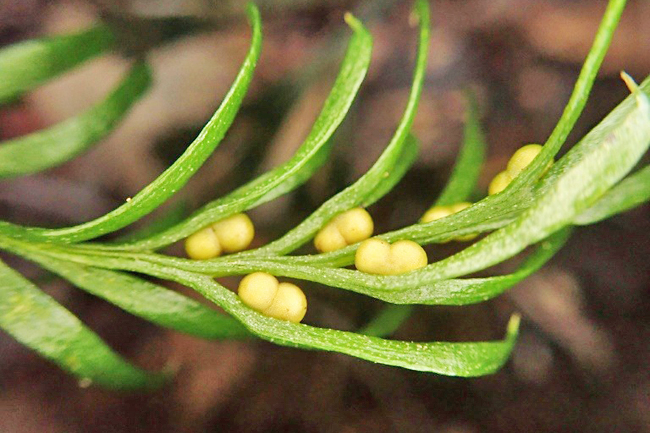PARIS (AFP) – A small, seemingly unremarkable fern that only grows on a remote Pacific island was on Friday crowned the Guinness World Record holder for having the largest genome of any organism on Earth.
The New Caledonian fern, Tmesipteris oblanceolata, has more than 50 times more DNA packed into the nucleus of its cells than humans do.
If the DNA from one of the fern’s cells – which are just a fraction of a millimetre wide – were unravelled, it would stretch out to 106 metres, scientists said in a new study.
Stood upright, the DNA would be taller that than the tower that holds London’s famous Big Ben bell.
The fern’s genome weighed in at a whopping 160 gigabase pairs (Gbp), the measurement for DNA length.
That is seven percent larger than the previous record holder, the Japanese flowering plant Paris japonica.
The human genome is a relatively puny 3.1 Gbp.
If our DNA were unravelled, it would be around two metres long.
Study co-author Ilia Leitch, a researcher at the UK’s Royal Botanic Gardens Kew, told AFP that the team was “really surprised to find something even bigger than Paris japonica”.

“We thought we’d already reached the biological limit. We’re really pushing at the extremes of biology,” she said.
The fern, which grows five to 10 centimetres tall, is only found in New Caledonia, a French Pacific territory which has recently seen unrest.
Two members of the research team travelled to the main island, Grand Terre, in 2023 and worked with local scientists for the study, which was published in the journal iScience.
Guinness World Records awarded the fern its coveted “largest genome title”.
The win by “this innocuous-looking” fern demonstrates that “record holders aren’t always the showiest on the outside”, Guinness World Records managing editor Adam Millward said.
Humans are estimated to have more than 30 trillion cells in our bodies.
Within each of those cells is a nucleus which contains DNA, which is like a “book of instructions that tells an organism like ourselves how to live and survive”, Leitch explained.
All of an organism’s DNA is called its genome.
So far, scientists have estimated the genome size of around 20,000 organisms, just a fraction of life on Earth. Among animals, the marbled lungfish has the largest, with 130 Gbp.
While plants have the biggest genomes, they can also have incredibly small ones. The carnivorous Genlisea aurea’s genome is just 0.06 Gbp.
But we humans need not feel inadequate when comparing ourselves to the mighty T. oblanceolata.




